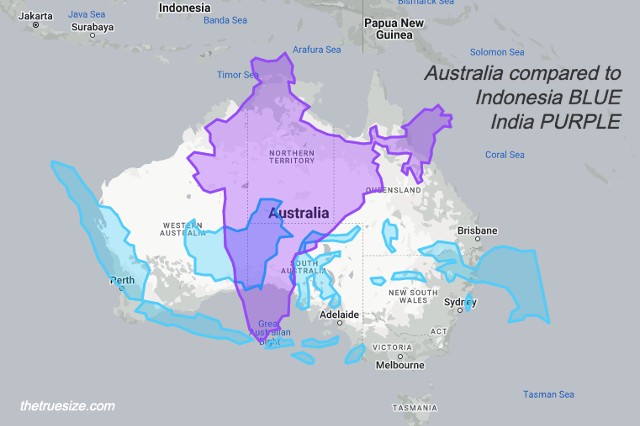No products in the cart.
Highlights in this Article about investing in Bali
Living in Bali as an Investor and Entrepreneur
One of the many exciting opportunities for foreigners to relocate to Bali is opening their own business or possibly investing in existing businesses. In Indonesia, foreigners have the option of investing in a variety of industries. New businesses continuously spring up in Bali, as obtaining approval to open enterprises in Bali is relatively straightforward, contrary to what many believe. The key is to follow the legal and fiscal guidelines and work with professional consultants and agencies that can help you. The number of entrepreneurs and private investors who are considering Bali is growing still.
Investing in Bali
The property sector is a fantastic investment option for both business and personal purposes, since it is one of the safest investment practices and can be used for a variety of objectives.
Investor KITAS
Becoming a founder or shareholder of a local limited company, that allows foreigners to be shareholders and investors. Comes with a 2 year investor visa.

Hospitality Investments
Tourism Industry and Hospitality Sector in Bali, has grown and will continue to grow. Restaurants, Spas, villas, hotels, & retail are often businesses owned by foreigners.
Why invest in Bali?
5+Million international tourists and 7+million domestic tourists travel to Bali every year (pre-covid). Ignoring the shocking effects of the pandemic for a second, this has created a thriving hospitality industry, that grew since it became significant sometime in the 90ies. Of course, this dynamic economy creates interesting and also lucrative investment opportunities.
Running a lifestyle, wellness, or hospitality business in Bali, and particularly investing into land and properties has been undoubtedly profitable for many foreign investors since decades.

Is the Balinese economy solid?
Investing your money in Bali comes with lots of opportunities, but of course also with risks. The economy highly relies on tourism, which makes it also vulnerable. Volcano eruptions and earthquakes for example can happen, and do happen. And of course not to forget the pandemic that brought tourism to a global standstill. Yet Bali has always recovered after each global, regional or domestic “disaster”, not just very quickly, but also grew after every low point beyond expectations. Bali is a global “brand” and the island’s economy will continue to grow; some say, “it’s just the beginning”, and we believe so too.
Indonesia – a sleeping giant? A Rising Star?

Even though, people call Indonesia a sleeping giant, one would have to admit, that this giant does not sleep at all anymore and has woken up. Indonesia’s demographic with its young and increasingly well educated population pushing into the middle class and further, is one of the absolute strong points of the economy, and domestic tourism will grow for years to come in Bali.
The political system and the young democracy is rather stable, welcoming to foreign investors, and a reliable international partner and member of the ASEAN countries.
Even though, people call Indonesia a sleeping giant, one would have to admit, that this giant does not sleep at all anymore and has woken up. Indonesia’s demographic with its young and increasingly well educated population pushing into the middle class and further, is one of the absolute strong points of the economy, and domestic tourism will grow for years to come in Bali.
The political system and the young democracy is rather stable, welcoming to foreign investors, and a reliable international partner and member of the ASEAN countries.
The demographic characteristics of Indonesia contribute to its potential for economic growth. Some key factors that make Indonesia’s demographic profile conducive for economic expansion are:
- Large and Growing Population: Indonesia is the fourth most populous country in the world, with over 270 million people. This sizable population presents a significant consumer base and a potentially abundant labor force to support economic activities.
- Youthful Population: Indonesia has a relatively young population, with a large proportion of people under the age of 30. This youthful demographic can drive consumption, innovation, and entrepreneurship, fostering economic dynamism.
- Urbanization: Indonesia’s urbanization rate is steadily increasing as more people move to cities in search of better opportunities. Urbanization can lead to increased productivity, infrastructure development, and higher demand for goods and services.
- Emerging Middle Class: The rising middle class in Indonesia is contributing to increased consumer spending and demand for a wide range of products and services.
- Natural Resources and Agriculture: Indonesia is rich in natural resources, including minerals, oil, gas, and agricultural products, which can fuel economic development and exports.
- Strategic Location: Indonesia’s geographic location between the Indian and Pacific Oceans positions it as a strategic hub for trade and investment in the Asia-Pacific region.
- Increasing Connectivity: Improvements in infrastructure and technology are enhancing connectivity within Indonesia and with the global economy, supporting economic growth and trade.
- Government Reforms and Investment Policies: Indonesia has been implementing economic reforms and investment-friendly policies to attract foreign investment and stimulate economic activities, and will most likely continue to do so.
I is therefore highly plausible to expect that Indonesia will continue to rise as an economic power. It’s considered a major emerging economy. Many economists projected that Indonesia’s economy would continue to expand at a robust rate over the next decade, with growth rates outpacing those of developed economies. If Indonesia continues to capitalize on its demographic strengths, implement pro-growth policies, and attract investment, it has the potential to become one of the world’s top economies within the next decade. However, achieving this will depend of course, on the country’s ability to manage challenges, maintain political stability, and address economic reforms effectively.
And Bali? Well If Indonesia will grow and prosper, most certainly Bali will too.
What are the main risks to invest in Bali?
Our Top 15 risks and reasons for failure for foreign investors in Bali:
- Overreliance on Tourism van be a risk as we pointed out already: Relying solely on the tourism industry without diversifying investments can make businesses vulnerable to fluctuations in tourist arrivals and global events (e.g., pandemics, natural disasters). Therefore one needs to be prepared that some of these disasters might strike and adjust particularly the financial back up and cash-flow management accordingly.
- Regulatory Complexity: Navigating regulations and bureaucratic processes in Indonesia can be challenging for foreign investors who don’t know their way around. But it can be done. And it can be done properly if one does not fall into the tempting trap to try to avoid taxes or circumvent regulations and laws.
- Land Ownership Restrictions: Foreigners are limited in their ability to own land in Indonesia, which can complicate real estate investments and require careful structuring.
- Cultural and Language Barriers: Understanding and respecting the local culture is vital. Failure to do so may lead to miscommunication, misunderstandings, reputational damage, high staff turnover etc.
- Infrastructure Challenges: Bali’s infrastructure, such as transportation and utilities, may not meet the demands of a growing economy, impacting business operations in certain areas. Urban planning is still a problem. And a nice villa next to a ricefield might find itself next to a beach club a few years later.
- Environmental Vulnerabilities: Bali faces environmental issues like waste management and water scarcity. Ignoring sustainability practices could lead to negative consequences for businesses and the environment, which would undoubtedly affect tourism.
- Competition and Saturation and Failure to Adapt: The competitive nature of the tourism sector may result in oversaturation and price wars, affecting profit margins. rest assured, what ever you can do well, somebody will most likely do it better at some point and become your competition. Businesses within the tourism sector need to stay agile, flexible and adapt to new trends and demands. Being resistant to change and not adapting to market trends can end up badly.
- Currency Fluctuations: Bali’s economy is somewhat sensitive to changes in currency exchange rates, which can impact investment returns, especially for foreign investors.
- Labor Costs and Skill Shortages: Even though wages are relatively low, Finding skilled labor at reasonable costs can be challenging, particularly in specialized industries. And there is something like “wage inflation”. So one needs to anticipate that labour costs will steadily increase every year; which is a good thing for the local population, but can be risky for investors who calculate “too tight”.
- Seasonal Business Cycles: Many businesses in Bali experience seasonal fluctuations, particularly the more remote areas; and investors must plan for potential lean periods.
- Political and Economic Stability: Changes in government policies and economic conditions may affect business operations and investor confidence. Regulations can be passed by the central government and to a certain extend by the local government (Bali Governor). These two forces also don’t always “want the same thing or outcome”.
- Corruption and Bribery: Even though Indonesia has cleaned up significantly,and many governmental processes are no online and much more transparent, Investors must be cautious about corruption and bribery risks that can impact business practices. Don’t do it.
- Natural Disasters: Bali is susceptible to earthquakes, volcanic eruptions, and floods due to heavy rains in certain regions, which can disrupt businesses and impact infrastructure.
- Lack of Due Diligence and Inadequate Market Research: Insufficient research and due diligence on investments and business partners can lead to unexpected risks. Location, Location, Location. You need to know and understand the area well, where it is and where it is heading. “I always wanted to open a Cafe” might not be enough of a background to actually run one. Entering a market without a thorough understanding of customer preferences and demands can result in failure.
- Unrealistic Financial Projections: “UNDERFINANCING”. Overly optimistic financial projections may lead to poor financial planning and sustainability issues and can impact your cashflow drastically which in Bali, can become a nightmare rather quickly.
To avoid these risks and mistakes, investors should conduct thorough market research, engage with reputable legal and financial advisors, understand the local business environment, and be prepared to adapt their strategies based on changing circumstances. Investing in Bali can be rewarding, but it requires careful consideration and a well-informed approach to navigate potential challenges successfully.
We have seen dozens if not hundreds of businesses come and go over the last 20 years. While in any economy businesses fail and succeed, there are some risks and traps that are good to know.
The natural disasters such as earthquakes and volcanic eruptions did happen and will happen again, affecting tourism in some regions in Bali or as a destination overall. Even though no challenge lasts forever, the economy can crash for a few months and investors need enough resources to be able to handle such incidences. Bear in mind, that competition can be tough in all hospitality segments, there are constantly new places opening and the level of innovation and creativity of business owners is at times mind-blowing. Cash-flow management seems to be for many “inexperienced” investors a huge challenge, simply because they underestimate the tax bills, or are not aware that buying on credit is rarely happening and everyone wants to see the cash before doing anything. High interest rates, of course only if you manage to get a loan from a local bank. Naivity and lack of proper legal and fiscal research or listening to shady agents, consultants, influencers and wannabees can ruin any business rather quickly. It is absolutely crucial to build a strong foundation – legally and fiscally. The tax system can be complicated, the rules in general are getting stricter (that’s for the most part a good thing). Building & business permits need to be in place. Gradually, environmental protection requirements are getting stricter, limitations of ownership are a real thing, the requirements to have local shareholders or partners for some industries are mandatory, and you need a solution for the paid-up capital to found a company, and, last but not least, there are labour laws to follow. Choosing the wrong location. Not understanding the cultural differences when dealing with employees and business partners.
Becoming a foreign investor / shareholder in Bali
Opening a PT PMA. What is the difference between a PT and PT PMA limited liability?
A 100 percent Indonesian-owned limited liability company is known as PT, while a partially or entirely foreign-owned business are a PT PMA – these are the main two legal entity types in Indonesia.
Local businesses can only be owned by Indonesians who hold 100% of the company shares. A corporation is considered foreign-owned if a foreigner owns even 1% of the stock.
Foreign investors are not permitted to serve as the only director or commissioner of a local corporation, at least one local director is required in a PT. A foreign investor can be a director or a commissioner of a PT PMA since it is a foreign-owned company.
Can Investors get a KITAS? Kartu Izin Tinggal Terbatas), which is a Residence Permit Card for a temporary or limited stay
Yes, in general, with some restrictions, Investors can form a company and become a shareholder in this company. They can then apply for an Investor -Kitas, which is usually issued for 2 years and guarantees multiple entry.
- There are several legal and capital requirements for the company to fulfill and shareholders do also have certain legal & fiscal obligations, particularly if a dividend is distributed.
What are the required documents for an investor KITAS?
Documents requested from the Sponsor/Company:
- A decree from the Ministry for the Legalization of the Company’s Articles of Association, as well as any recent deed revisions
- Business Identity Number NIB (Nomor Induk Berusaha) is an ID number that identifies a business and serves as a permit.
- Operations Permit (Izin Usaha)
- Company’s Tax Number & Tax Status (NPWP Badan Usaha, KSWP Keterangan Status Wajib Pajak)
- Letter of Domicile from the Company (SKTU, or Surat Domisili Usaha)
- A recent quarterly business activity report (LKPM)
- The Director’s passport and KITAS OR Identity Card (KTP) of the Local Manager/Director’s
- Local Manager/Director’s Tax Number (NPWP) and Tax Status (KSWP)
Documents required from the applicant:
- Passport needs to be valid for at least 20 months for a 1-year KITAS, and at least 34 months for a 2-year KITAS
- A bank statement with a minimum balance of USD 1500
- 4cm x 6cm digital photograph
- Personal Tax Number (NPWP) & Personal Tax Status (KSWP)
- Healthcare Insurance (BPJS Kesehatan), and Social Security Card (BPJS Ketenagakerjaan)



































